AUGUSTA — After breaking three ribs and nearly killing himself in a snowmobile accident in December 2013, Jeff Hayden was told by paramedics that he was lucky to be alive.
It didn’t feel that way for the 30-year-old former Marine, who had been drinking the night of the accident in Madison and was charged with operating under the influence.
“My life had spiraled out of control,” said Hayden, 32. “I was making a bad name for myself and people were looking down on me. I was looking for all my answers in a bottle.”
He ended up spending 15 days in jail for the accident, an experience that further tested his ability to cope with post-traumatic stress disorder, something he says has been part of his life since he returned from active military duty in 2006. The accident and police charges also challenged his marriage, and he temporarily separated from his wife.
“My anxiety and PTSD were through the roof,” Hayden, of New Portland, said. “After that accident I won’t get on anything with a motor after drinking. I learned my lesson. I almost lost my family and my license. It just wasn’t worth it.”
A little more than a year later, Hayden says he’s come a long way in dealing with his PTSD.
Although he’s doubtful it will ever go away, he says he’s stopped using alcohol to block out painful memories. He’s also on the way to starting a new career — as a barber — that he says has motivated him along the way.
In February he enrolled at the Capilo Institute barber program in Augusta, an 800-hour licensing program that will be paid for with veterans benefits under the GI Bill.
Every weekday, Hayden gets up early and drops his kids off at school around 7:45 a.m. before driving about an hour one way to the Capilo Institute, where he is one of about 20 barber students.
The program, which started about three years ago, is the only barber certification program in the state and offers students the chance to earn a limited barbering license, which includes traditional barbering services like cutting and shaving but not other services like perms and hair coloring.
Though he struggled at first — a failed test quickly ignited an angry reaction one afternoon in the classroom — Hayden said he’s enjoying the program and that it’s helped him.
The outburst, in which he flung his books off the desk and walked out of the classroom after failing his first test, ended up being a milestone for him.
“I felt like a jerk for showing that side of me,” Hayden said. “The next day I apologized to my teacher and she was understanding about it, but I still have to remind myself that’s not me. That’s not who I want to be anymore.”
His teacher, Kathy Merrill, said that since that day Hayden has passed every test.
“It’s a lot of work,” she said. “There’s a whole adjustment when you go back to school like that, especially with kids and day care and his wife’s schedule. Plus he travels a long ways to be here. But he seems to be doing very well.”
Like him, many of Hayden’s classmates travel more than an hour to come to the barber program, from places like Bangor, Millinocket and Portland.
It’s clear that the small group has bonded from the way they interact with one another when out on the floor, a term they use for working in the student barber shop at the school. They take turns cutting hair for clients that walk in and when they’re not busy they practice on mannequins.
In between they laugh and joke around or chat as they lounge in the barber chairs.
“I really like the camaraderie,” Hayden said. “It reminds me a lot of being in the military. We joke around and we laugh a lot. It gives me an incentive to keep coming.”
The camaraderie of the military is a positive memory and one that Hayden says he has learned to embrace. There are others that have not been as easy to deal with — like learning that one of his best friend’s had been shot and killed in Iraq just as he was putting on gear to relieve his friend at the same outpost. Another friend was killed after a grenade was thrown into a cave, hitting his friend in the leg and causing him to bleed to death, Hayden said.
For a long time, Hayden, who spent 14 months in active duty in Iraq and Afghanistan with the Marines, said he used to use alcohol to escape the painful memories.
After the snowmobile crash in December 2013 and separation from his wife, Hayden signed up for a four-week long Chemical Dependency Recovery Program at the Togus veteran’s hospital, a residential rehabilitation program.
“It taught me a lot of things about myself,” he said. “Alcohol wasn’t the right choice. There’s nothing stopping me from drinking if I want to, but I don’t do it now to block my memories.”
“At times it still comes out. Some days I’m just so irritable over nothing,” Hayden said. Going to school and having a goal — to one day own his own business where he can hang pictures from his travels in the military and tell stories about his time served — have helped, though.
“It gives me something to do and helps keep me out of trouble. If I’m not putting in the hours I’m not going to graduate,” Hayden said.
He is planning to finish the program in August and then take the state board exams to get his license. “I think he’s going to be very successful when he graduates and gets out there,” Merrill said.
“I enjoy it,” Hayden said. “It’s fun talking to different people, finding out their jobs and what they do for a living. I like listening to their stories and what’s going on in their lives. A barber is there to listen, that’s what we do.”
Rachel Ohm — 612-2368
Twitter: @rachel_ohm
Copy the Story LinkSend questions/comments to the editors.


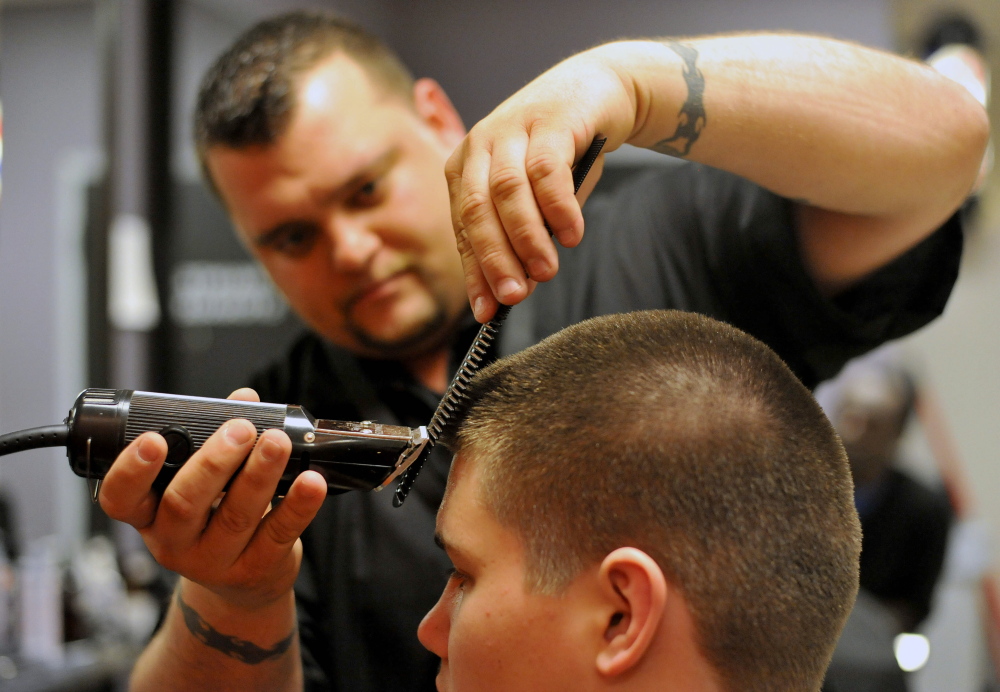
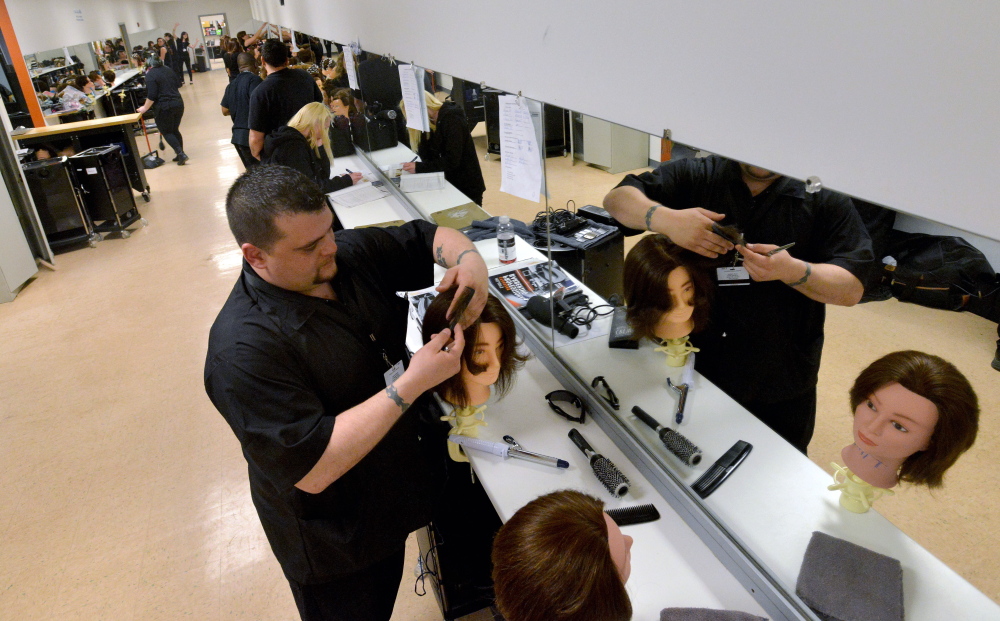
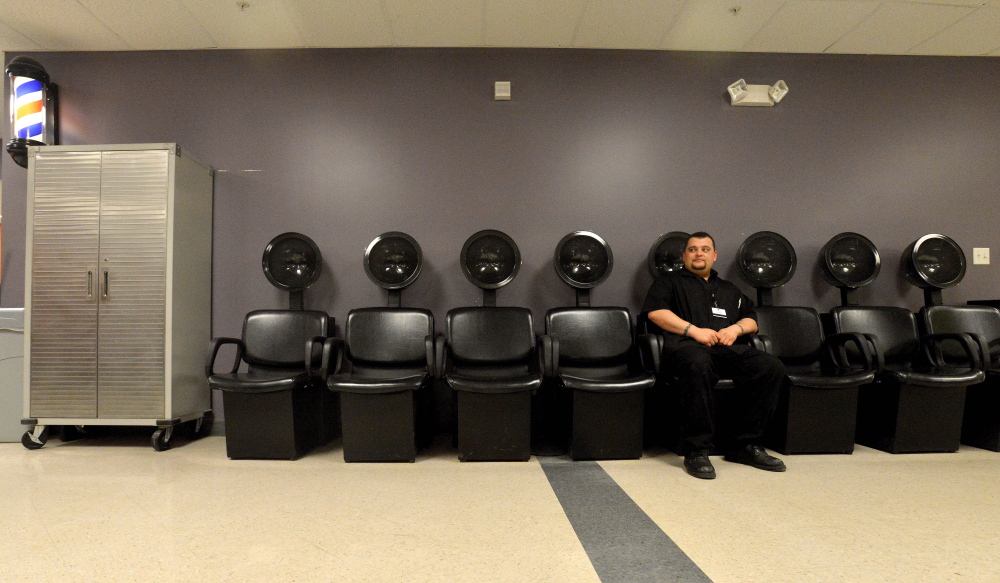
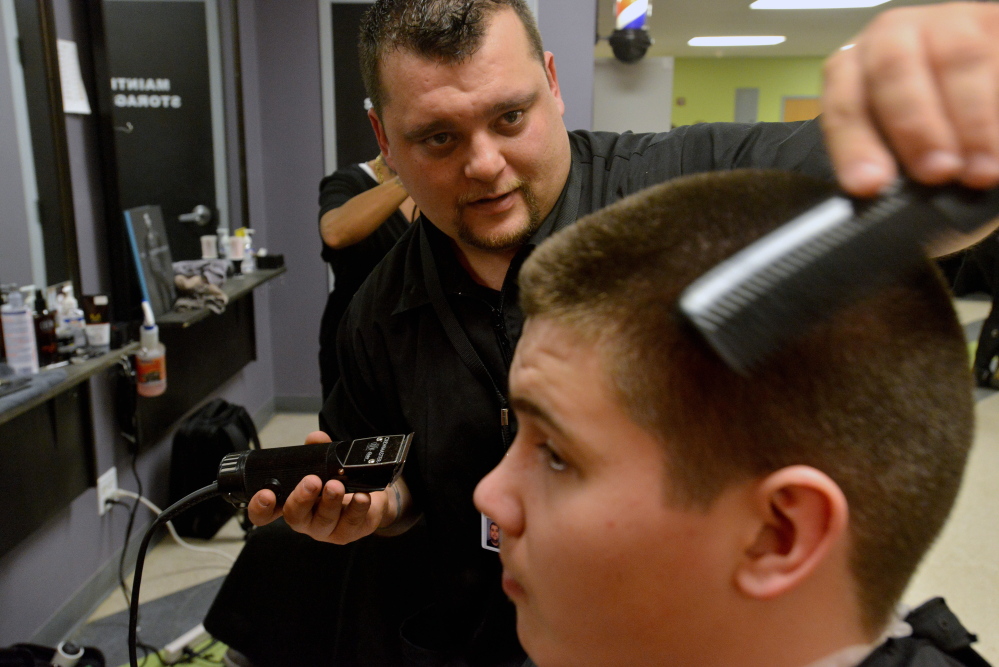
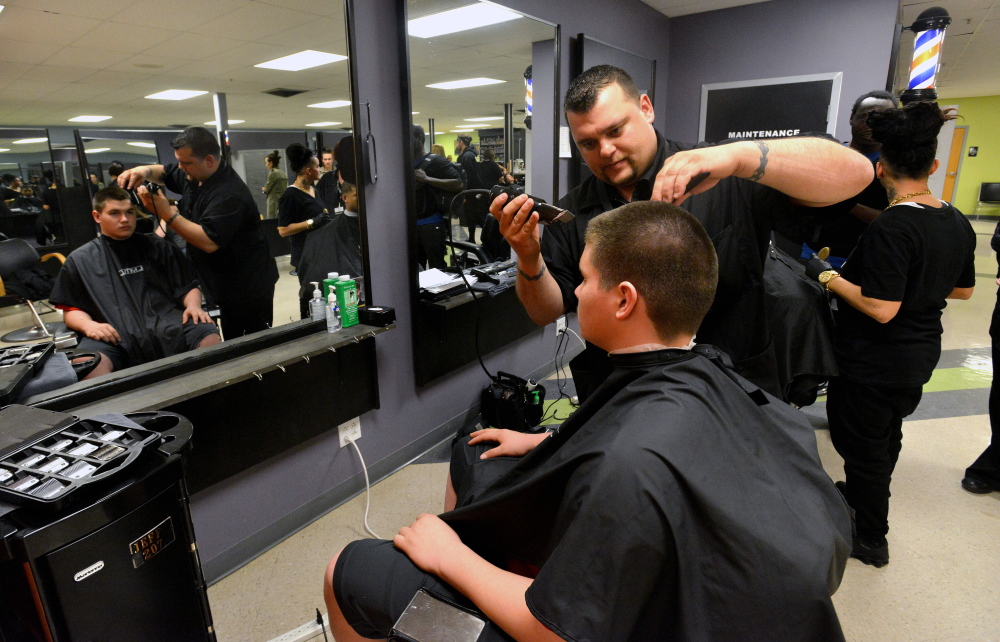

Success. Please wait for the page to reload. If the page does not reload within 5 seconds, please refresh the page.
Enter your email and password to access comments.
Hi, to comment on stories you must . This profile is in addition to your subscription and website login.
Already have a commenting profile? .
Invalid username/password.
Please check your email to confirm and complete your registration.
Only subscribers are eligible to post comments. Please subscribe or login first for digital access. Here’s why.
Use the form below to reset your password. When you've submitted your account email, we will send an email with a reset code.